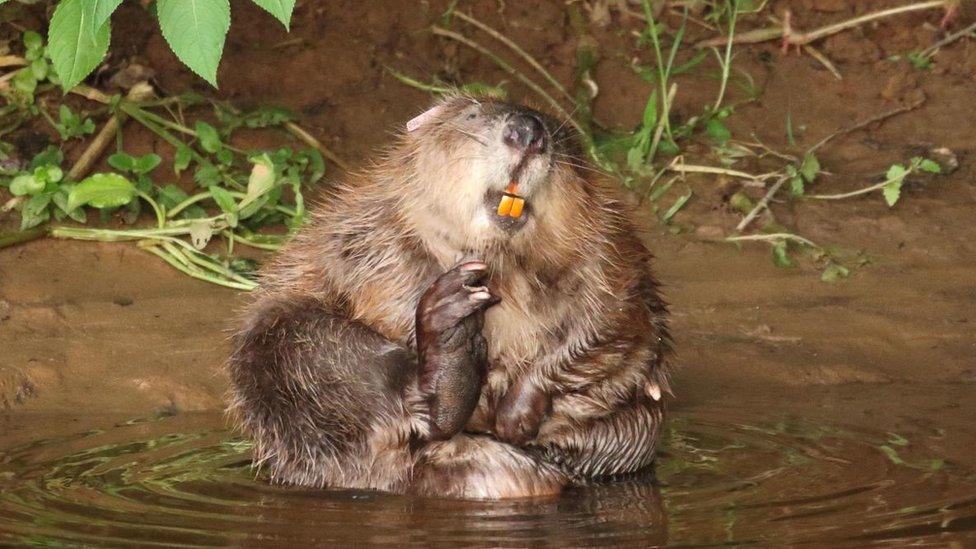How beavers can help stop homes from flooding
- Published
- comments

Beavers can play an important role in helping to keep our homes from being flooded.
That's according to scientists at Exeter University, who have carried out a five year study of wild animals living in Devon.
They found the animals helped to prevent flooding, reduce pollution and boost wildlife population.
It's thought this research will now help the government decide whether to allow wild beavers to return to England after being hunted to extinction more than 400 years ago.
Beavers have been living wild on the banks of the River Otter in Devon river for up to a decade when the trial began in 2015.
A plan to monitor them was put forward by Devon Wildlife Trust and the two family groups were allowed to remain on the water.
There are now at least eight pairs of beavers, occupying the main River Otter and the connected Tale.
The animals have constructed six dams upstream of the village of East Budleigh, which have significantly reduced peak flood flows through the community.
- They can remain underwater without breathing for up to 15 minutes .
- Their front teeth never stop growing and are always orange.
- They have a third transparent eyelid that helps them see underwater.
- They're mostly nocturnal animals.
- They're very good swimmers (thanks to their webbed feet) but are slow on land.
Beavers build leaky dams which help reduce flooding and also provide habitats for fish, small mammals, and insects, boosting biodiversity in the area.
The study found that in the pools created by beaver dams there were 37 percent more fish than in comparable stretches of the river where there were no dams.
However, some farmers in Devon worry that growing beaver populations could actually cause more flooding on their land.
Because of this ongoing debate, the government has waited for the results of the study on the River Otter beavers before making a decision on their reintroduction.
- Published2 January 2020
- Published13 November 2019
